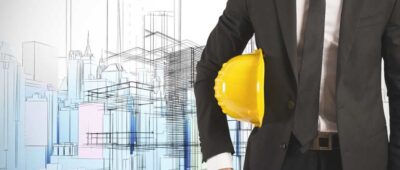5 important features of Facilities Management Solutions – beyond managing building operations

Professionals worldwide are willing to accept that Facilities Management software can be a valuable tool to boost the operational efficiency of any facility. This software can help in the easy management of the facility by accounting for the resources, managing maintenance, and suggesting opportunities for suitable improvements as well as streamlining day-day operations of the business. That said though, there are several other areas also where the benefits are being seen.
Facilities everywhere are benefiting from the comprehensive Space Planning, Lease Management, and Building operations management features these solutions provide. Today, facility managers must focus on strategic planning and other core activities and the use of facilities management software can save them valuable time.
In India where the dynamics of this market are just taking shape, some curiosity does exist about what the solution entails. The question is what are the vital features of a good facilities management solution – even beyond building operations management?
What is Facilities Management and its importance in business?
For those just feeling their way in, a bit of a refresher. The process of managing and maintaining the facilities within an enterprise is known as facilities management. The facilities may comprise anything right from the site, office space, and the mechanical and electrical utilities responsible for managing health and safety of the workers. Over the last few years, facilities management has gained significance as enterprises are realizing the value of having efficiently managed buildings and utilities. The primary importance is in facilitating efficient building operations management – but that is a blog for another day!
The facilities management team mainly consists of professionals who are engaged in managing day-day operations, maintenance and repair of the utilities associated with the company. By having an effective facilities management software, facility managers can conduct assessments and track as well as manage the property and utilities of the company. With a facility management software, companies can boost their efficiency and business productivity, while enabling efficient management of business assets. This proves to be cost-effective in the long run.
Top Features that every facilities management software must have:
1) Must be able to generate, analyze and prioritize work requests – Facility managers are constantly overloaded with different kinds of tasks and hence it becomes very difficult for them to organize and delegate tasks according to their priority. Facility management software must be able to assist with effective prioritization by generating work requests with full details. It must also provide notifications to other staff members about the kind of services, which may be. A key feature of facility management software is to be able to prioritize tasks based on important work requests. This may be useful for suppliers, contractors or sub-contractors to understand the high priority tasks and complete them first.
2) Track work orders and history related to the equipment data – An efficient facility management software must be able to track work orders based on the monthly, quarterly, half-yearly or yearly basis. This can assist facility managers to find out areas that need more focus and attention on making further improvements. The facilities management software must also enable the managers to track the previous data related to errors, issues related to the equipment to avoid recurring issues in the future that can reduce the cost of equipment repair.
3) Keep track of consumable inventories – One of the vital features in a facility management software is to be able to keep track of all the essential inventories of both consumable and non-consumable items. You may need a stock updating alarm kind of system to ensure that the facilities do not run out of essential supplies of items.
4) Must allow for predictive and preventive maintenance – Facility managers must be able to keep track of all the essential maintenance issues related to the building and its core activities such as plumbing, carpentry, utilities etc. In such cases, facility management software can be helpful as it maintains the records of all the maintenance work done in the past and provides alerts on the next scheduled date of maintenance service. Facility management solutions offer different degrees of customization that enable advanced scheduling options and tracking across many locations. A key impact to look for is effective resource management for resources like Electricians, Plumbers, Mechanical engineers and the like. Effective scheduling of the workforce becomes crucial when dealing with large facilities and many, and varied labour resources.
5) Inventory and Asset Management- Along with managing maintenance schedules and work order requests, the facility management team also needs to keep track of inventories of chemicals, equipment, and other products. The spaces within the facility require proper maintenance and regular cleaning using machinery and tools. There are many facility management solutions that offer barcodes, identification numbers and scannable QR codes related to different pieces of equipment. This type of digital tracking can assist with regular maintenance as well as provide protection against possible thefts.
Future trends that could impact facility management:
1) IOT – In the future, IOT could have a considerable impact on the facilities management industry. This could be through the use of smart sensors which may be used to track, collate and communicate vital data related to the status and performance of the buildings. Using this technology, facility managers can detect changes in temperature, light, water, humidity levels, motion, vibration etc. The use of IOT in facilities management can help in remote monitoring of smoke detectors and alarms to get real-time information about some of the key emergency services. There are many other intelligent technologies such as NFC sensors, smart surveillance systems, and security applications which can help in automating many other FM related activities and boost their efficiency in the future.
2) Artificial Intelligence and Robots- Robots are already being deployed in workplaces and factories to boost efficiency and increase output while eliminating additional tasks. One such example is the Finnish company ZenRobotics which has come up with a bot-driven waste management system that helps in reducing human error while boosting productivity.
3) The rise of Big Data -Big data has an enormous potential to overcome many of the facilities management challenges by providing actionable insights. Data may be used for the purpose of predicting energy consumption in spaces based on their weather, temperature or time. Data could also be used for detecting equipment failures or power outages based on data collected using smart meters or IT networks. Analyzing the right data can help in bringing remarkable changes within the facility by assisting with smart decision making.
4) Sustainability and environmental awareness -The biggest challenge posed in the coming decade for facilities management will be how to become more environmentally aware and reduce their carbon footprint. Technological trends are emerging where the facilities management solutions help facilities become more efficient in their energy usage and waste management.
Conclusion
Facilities Management can be complex and effort-intensive. With a well-crafted Facilities Management Solution with the right features, the effort can be reduced and the efficiency can be improved.







